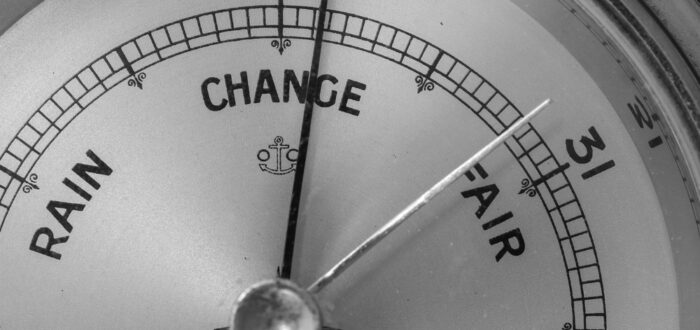Whether you’re an avid traveler, outdoor enthusiast, or simply someone who experiences weather changes regularly, understanding how barometric pressure affects your hearing is crucial.
At Madison & Sarasota Hearing Center, we’re dedicated to providing valuable insights to help you navigate these changes and maintain optimal hearing health. Here’s what you need to know:
How Barometric Pressure Affects Hearing
Barometric pressure, often associated with weather changes, can impact the delicate structures of the ear, including the eardrum and middle ear. Here’s how changes in barometric pressure can affect your hearing:
- Eustachian Tube Function: Changes in pressure can influence the Eustachian tubes’ ability to equalize pressure between the middle ear and the outside environment, leading to discomfort or a feeling of fullness in the ears.
- Fluid Movement in the Ear: Barometric pressure changes can disrupt the movement of fluids within the ear, potentially affecting hearing sensitivity, especially for individuals with existing ear conditions.
- Tympanic Membrane Movement: Rapid shifts in barometric pressure can cause the eardrum to move, affecting the perception of sound.
Tips for Navigating Barometric Pressure Changes
While controlling atmospheric conditions is challenging, there are steps you can take to minimize the impact of barometric pressure changes on your hearing:
- Stay Hydrated: Adequate hydration supports Eustachian tube function, helping to maintain equalized pressure within the ear.
- Chew Gum or Yawn: Activities like chewing gum or yawning promote jaw movement, which can help open the Eustachian tubes and alleviate pressure imbalances.
- Use Ear Protection: Consider using ear protection such as earmuffs or earplugs, especially during extreme weather conditions or rapid pressure changes.
- Seek Professional Advice: If you experience persistent discomfort or changes in hearing during weather fluctuations, consult with your audiologist for personalized recommendations.
Minimizing Discomfort During Flights
For frequent travelers, airplanes present unique challenges when it comes to barometric pressure changes. Here are additional tips to protect your hearing during air travel:
- Swallow and Yawn Frequently: Swallowing and yawning help open the Eustachian tubes and equalize pressure, particularly during takeoff and landing.
- Valsalva Maneuver: Perform the Valsalva maneuver by gently blowing air out of your nose while pinching your nostrils closed to relieve pressure.
- Decongestants: Over-the-counter decongestants can clear congestion in the Eustachian tubes, but consult your doctor before using them.
- Avoid Alcohol and Caffeine: These substances can contribute to dehydration, exacerbating the effects of pressure changes.
- Hearing Aid Settings: If you wear hearing aids, adjust the settings for airplane travel, as some devices have modes designed to minimize discomfort during pressure changes.
By following these tips, you can navigate barometric pressure changes more comfortably and protect your valuable hearing health. Understanding how these changes affect your hearing empowers you to proactively manage your auditory well-being. If you have concerns or experience discomfort during weather fluctuations, don’t hesitate to reach out to the experts at Madison & Sarasota Hearing Center.
Have a Question? Contact Us Today!
For more information on hearing health or to schedule a hearing assessment, contact our hearing care specialists at Madison & Sarasota Hearing Center. Call 518-430-4005 or click here to book a consultation today.

